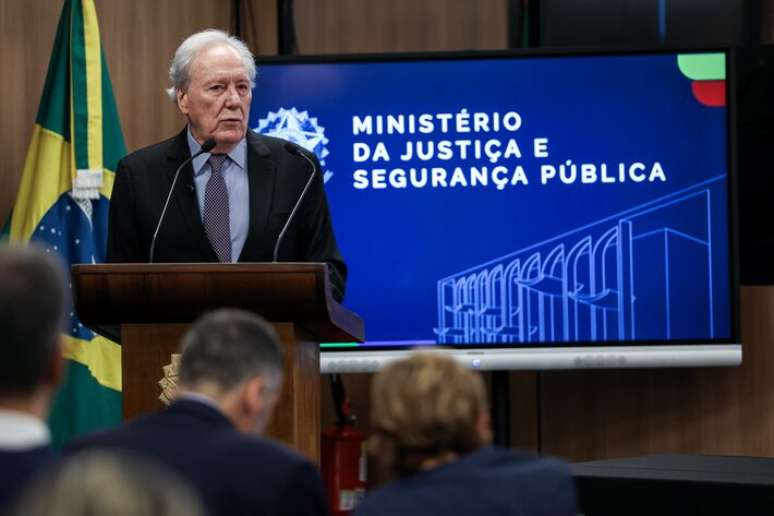The text provides for an increase in sentences for faction leaders, the creation of a National Bank of Criminal Organizations and the infiltration of agents and shell companies into criminal organizations
BRASÍLIA — The Minister of Justice and Public Security, Ricardo Lewandowskipresented this Wednesday, 22, the anti-mafia billwhich now passes to the Civil House.
The text updates the legal framework for the fight against criminal organizations and constitutes one of the Lula government’s bets to counter the advance of factions like that First Capital Command (PCC) and the Red Command (CV).
Prepared by the National Secretariat of Public Security, under the responsibility of Mario Sarrubbothe proposal aims to attack the factions and militias that dominate the territories and have infiltrated the formal economy.
The bill makes changes to a number of laws, such as the Penal Code, the Code of Criminal Procedure, the Heinous Crimes Act, the Temporary Prisons Act and the Criminal Executions Act.
It provides for the establishment of a new criminal typology (“qualified criminal organization”), tougher sanctions for leaders of criminal organizations, the creation of the National Bank of Criminal Organizations and the implementation of tools to decapitalize organized crime with greater agility.
“The bank will be open to other security forces from across the country, state and municipal. We have no restrictions regarding cooperation between federated entities. It is a global fight and we must count on the participation of all security forces,” says Lewandowski.
The project also includes the infiltration of police officers and collaborators into the criminal organization during investigations and the creation of fictitious companies with the aim of infiltrating the criminal organization.
In the event of fraud (financial fraud) carried out by a criminal organization, the Public Prosecutor’s Office can file a complaint even without the victim’s initiative.
Internet providers, telephone operators and technology companies must provide access to geolocation data and records of persons under investigation. Trading companies, credit card operators, digital payment platforms and fintechs must provide access to the purchase and payment records of individuals under investigation.
One of the projects even involved the creation of an anti-mafia agency – an idea that was supported by prosecutors, but met with resistance from the Federal Police (PF) and had to be withdrawn.
Recent investigations by the PF, public ministries and state police have uncovered schemes that generated billions of reais in illicit activities. Criminals used companies to launder money and infiltrated public contracts for services such as transport and waste collection.
THE Ministry of Justice is preparing to launch, by the end of the year, a series of initiatives to combat crime. The issue gains importance amid the advance of the factions and due to the centrality it should have in the 2026 elections.
THE public safety According to a Genial/Quaest survey published this month, it is the topic that worries 30% of the Brazilian population the most, ahead of social problems (18%), the economy (16%), corruption (14%) and health (11%).
The government plans to publish the results of the territorial recovery pilot projectan index to standardize data on unsolved murders and an intelligence center in Acre. This morning the Ministry launched the Safer Municipality, an investment program in municipal security, focused on the Municipal Civil Guard.
Source: Terra
Rose James is a Gossipify movie and series reviewer known for her in-depth analysis and unique perspective on the latest releases. With a background in film studies, she provides engaging and informative reviews, and keeps readers up to date with industry trends and emerging talents.








